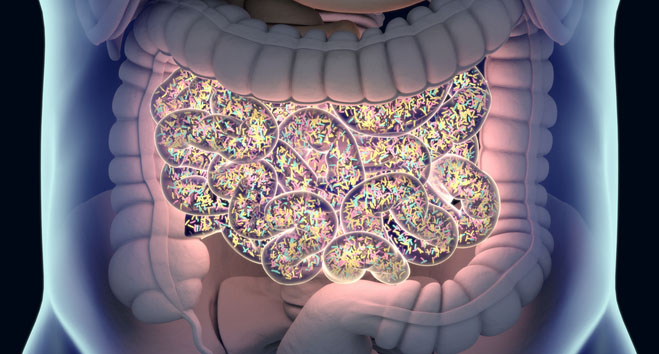
Research led by Columbia University and carried out in mice suggests that eating a diet high in sugar and fat can negatively disrupt the microbiome and help contribute to onset of the metabolic syndrome, obesity, and type 2 diabetes.
The study, published in Cell, showed that mice fed the equivalent of a Western-style high-fat, high-sugar diet had a significant reduction in filamentous bacteria that led to a lower number of Th17 immune cells in the gut.
These beneficial cells help stop “bad” lipids being absorbed by the body and also act to decrease intestinal inflammation. “In other words, they keep the gut healthy and protect the body from absorbing pathogenic lipids,” said lead author Ivalyo Ivanov, associate professor of microbiology and immunology at Columbia University Vagelos College of Physicians and Surgeons, in a press statement.
A link between the gut microbiome and metabolic conditions such as obesity and the metabolic syndrome, has long been suspected. But exactly what role gut microbes play in these conditions was unclear.
After being fed a Western-style diet for four weeks the mice showed signs of the metabolic syndrome, including weight gain, glucose intolerance and insulin resistance. An increase in Faecalibaculum rodentium bacteria helped to displace the filamentous bacteria linked to Th17 cells.
Notably this change was linked to sugar and not fat intake, as a second group of mice fed a high fat but low sugar diet had normal levels of Th17 cells and largely did not develop metabolic symptoms. The exceptions were mice whose gut did not contain filamentous bacteria to begin with.
“This suggests that some popular dietary interventions, such as minimizing sugars, may only work in people who have certain bacterial populations within their microbiota,” said Ivanov.
While the gut microbiome of mice obviously differs from that of humans, Ivanov and team think a different type of bacteria may play a similar role in humans.
“Our study emphasizes that a complex interaction between diet, microbiota, and the immune system plays a key role in the development of obesity, metabolic syndrome, type 2 diabetes, and other conditions,” Ivanov commented.
“It suggests that for optimal health it is important not only to modify your diet but also improve your microbiome or intestinal immune system, for example, by increasing Th17 cell-inducing bacteria.”













